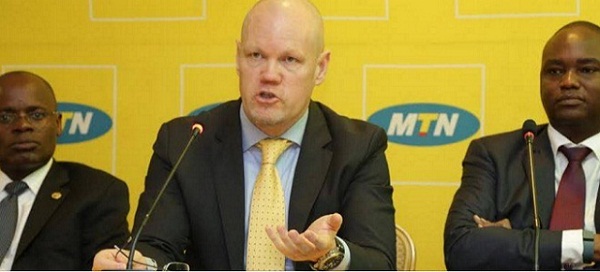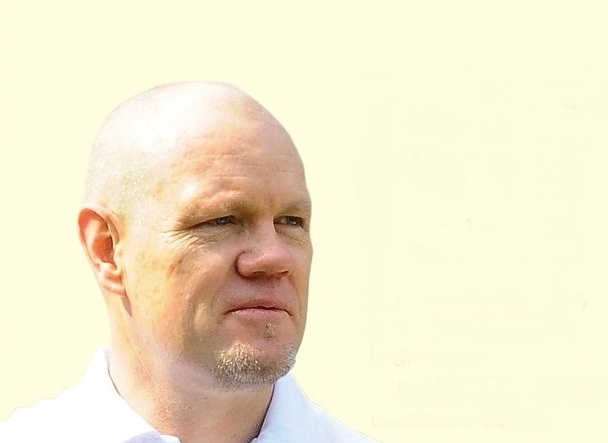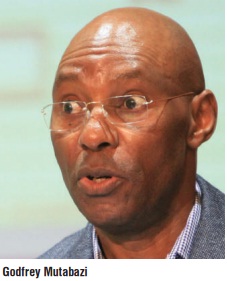On May 26, Brian Gouldie, the chief executive officer of MTN Uganda appeared sharp in a navy blue suit, light blue shirt and yellow dotted tie as he presided over the announcement of the company’s new syndicated loan at the MTN Towers in Kampala.

He couldn’t have been sharper for a man who was announcing a $114 million (Shs380 billion) loan acquisition and who was accompanied by the biggest names in banking in town – Stanbic Bank’s Patrick Mweheire, Standard Chartered Bank’s Herman Kasekende, Citi Bank’s Robert Jjagwe and Barclays Bank’s Rakesh Jha – who put together the loan.
But as Gouldie spoke about the company’s future prospects, very few in the room could imagine that a decision had earlier been taken in South Africa to bring his tenure at MTN Towers to an end. The Independent has learnt that the decision by the board not to renew Gouldie’s contract, which officially ends this June, was influenced by a procurement saga and poor performance indicators. The telecom’s shareholders have been getting jittery over dropping revenues, profits and loss of value through ‘grey traffic.’
But an alleged decision by Gouldie to influence the procurement of extra agency services worth a million dollars (Shs. 3.3 billion) from a South African-based company when they were already being offered locally seems to have sealed his fate.
A source who understands the inner workings of the telecom, toldThe Independent on condition of anonymity that trouble for Gouldie, 43, was already brewing by December last year. It is said that Anthony Katamba, the company’s corporation secretary, blocked the said procurement, which resulted into a fall out and an inquiry by a team from the company headquarters in South Africa.
Procurement saga, poor performance indicators, rows with UCC seal Brian Gouldie’s fate
Apparently, procurement for agencies at MTN is approved by the head office in South Africa but the procurement in question was done locally and somewhat outside established company procedures.
Insider sources intimated that the fight escalated to the telecom giant’s executive committee, which is composed of management. Some of the managers felt that the head office needed to have been involved especially given that the profile of the services being procured had expanded.
Matters were not helped by the fact that the South African company in question was allegedly linked to one of Gouldie’s family members. With this decision, Gouldie also made enemies within the circles of MTN’s local contractors who felt that business was taken away from them to the South African company.
Once the news reached the bosses in South Africa, they dispatched a team to investigate the matter. The team interviewed officials at the company and the first sign that the South African team implicated Gouldie came when the local contractors who had been cut off, were re-engaged. The Independent could not immediately reach Gouldie for a comment by press time.

He served as the chief marketing officer of MTN South Africa before he was appointed to head the MTN Uganda team in June 2014 replacing Mazen Mroue who was transferred to MTN Irancell. Gouldie, therefore, was making two years at MTN Towers.
Pointing to possible failures on Gouldie’s part, a source at the sector regulator Uganda Communications Commission (UCC) who declined to be named, said that it was telling enough that Gouldie had not lasted as long as his predecessors.
An official at MTN, who declined to be named because they are not authorized to talk to the media, said it was not unusual for the company to recall a CEO in a space of two years.
Indeed, Gouldie’s successor, Mazen left exactly after two years. While Mazen moved on to be the chief operations officer at MTN Irancell, it is not yet clear what the fate of Gouldie will be. The Independent has however learnt that his successor might be from one of the company subsidiaries in West Africa.
Gouldie’s departure is not an ordinary departure. When he joined the Kampala team, MTN was proud of its performance. Indeed, he described the company’s 2014 results as “a solid financial performance”.
The company had just posted a net profit of Shs 229 billion. He said data and mobile money had had “a tremendous contribution to our revenues”. The company’s total revenue had just increased by 6.8% and it had a customer base of 10.4 million subscribers. The telecom giant was also still reaping the fruits of a 2009 syndicated loan it had used to revamp its technology in order to improve the data platform.
During the SIM card registration operation, MTN Uganda lost about 2.7 million subscribers, whose SIM card had not been registered. This ate deep into the company’s revenues. Definitely the shareholders were not happy at what they saw as negligence on the part of the company’s management.
But MTN also had problems. It was still reeling from the losses of a mobile money fraud and its relationship with the regulator, the UCC, was at its worst. Indeed, Gouldie told reporters that the company had requested a meeting with the regulator on the Feb. 03 and the UCC executive director had written back saying engagement with MTN has been suspended indefinitely. Around the same time, UCC announced it had slapped a Shs 5bn fine on MTN for refusing to comply with directives to changing its codes from 155 and 156 to 130 and 131. This was the first time such a big fine was being imposed on MTN having enjoyed an almost perfect relationship with the government since it launched operations in Uganda. When a similar predicament of a hefty fine befell MTN Nigeria in October last year over failure to comply with the regulator’s rules to disconnect unregistered SIM cards, the CEO was forced to resign from his position.

When contacted, Godfrey Mutabazi, the UCC executive director, gaveThe Independent assurances that the relationship with operators had improved. “We have good relations with our operators,” he toldThe Independent, “We only have issues with them over quality assurance or when they are not following the law and regulations.”
 The Independent Uganda: You get the Truth we Pay the Price
The Independent Uganda: You get the Truth we Pay the Price



